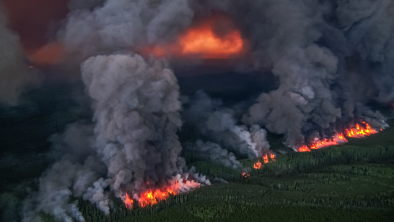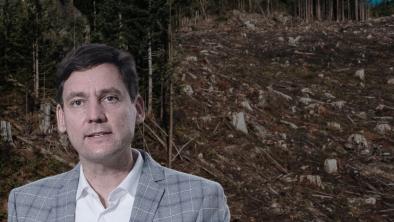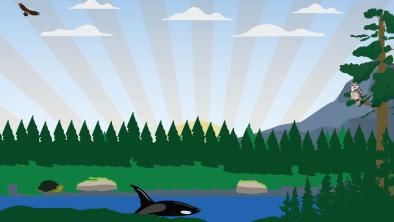Group angry over old-growth clearcut in Walbran Valley
Times Colonist
As Torrance Coste stood beside giant stumps in a clearcut in the Upper Walbran Valley, he wondered why anyone would cut down 900-year-old trees.
“Unlogged stands and 900-year-old trees are incomparable in terms of their value in sequestering carbon,” said Coste, a campaigner with the Wilderness Committee.
“Given what we know about climate change, liquidating the last few stands of old growth for very short-term profit is extremely irresponsible.”
Coste drove into the Walbran Valley this month with a student movie crew that wanted to film giant trees.
The story they have taken back to New York will not reflect positively on B.C.’s logging practices, he said.
“I just stopped dead in my tracks. The forest was now a field of stumps. It was the worst sort of clearcut you will see anywhere.”
The area is about one kilometre from Castle Grove, which contains the “Castle Giant” — a western red cedar with a five-metre diameter, considered one of the widest trees in Canada.
The area has also been ground zero for forest protests on Vancouver Island.
Protests in 1991 resulted in the lower half of the Walbran Valley and the Upper Carmanah Valley being added to Carmanah Walbran Provincial Park in 1995.
In 2003, more protests erupted, resulting in the arrest of environmentalist Betty Krawczyk, who was 74 at the time.
Last year, after another skirmish over logging plans near Castle Grove, the company backed off and the province promised to look for new ways to protect ancient stands of trees.
“We need an old-growth logging ban right off the bat,” Coste said.
The recent logging, which took place on Crown land, was conducted by the Teal Jones Group of Surrey in late November. The company had all necessary permits and plans in place, said Forests Ministry spokesman Brennan Clarke in an emailed response to questions.
The cuts took place within a special management zone that includes 2,600 hectares along the east side of the Walbran protected area, he said. Clearcuts are limited to a maximum of five hectares and cutblocks that are selectively logged cannot be larger than 40 hectares.
“The government is still actively working on new ways to protect ancient or giant trees,” Clarke wrote. “On Vancouver Island, 46 per cent of the forest on Crown land is old growth. Of the 862,125 hectares of old-growth forest, it is estimated that over 520,000 hectares will never be harvested.”
No one from Teal Jones was available to comment on the logging because of spring break holidays.
Rob Fleming, the B.C. NDP’s environment critic, said the clearcut beside the road leading into Castle Grove shows the need to strengthen old-growth management areas.
“I think we need to look at gaps in the current laws and designated protected areas and look at why 900-year-old trees and stands are not protected,” he said.
The problems were underlined recently by auditor general John Doyle, who said B.C. is not doing enough to protect the province’s biodiversity, Fleming said.
“A patchwork doesn’t protect biodiversity,” he said.
“On Crown land there should be better opportunities to have old growth preserved. We just don’t see any proactive old-growth or conservation strategies in B.C.”


